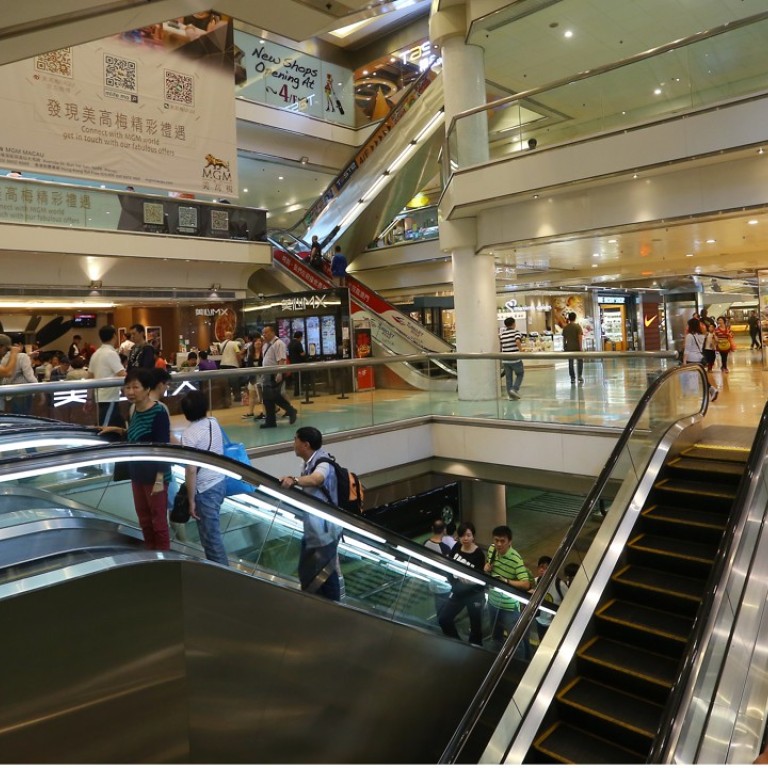
Hong Kong consumers warm to online shopping, with a little help from Alibaba’s Singles’ Day
In a city with one shopping centre per square mile, visits to stores have always been preferred, but that is changing with the relentless march of e-commerce
E-commerce has been slow to catch on in Hong Kong compared to other developed Asian markets such as South Korea and Taiwan, but Alibaba Group’s giant Singles’ Day online shopping event is helping change that mindset.
Surveys show that Hong Kong residents still prefer to shop at physical stores – perhaps no surprise in a city which averages one shopping centre per square mile (2.56 sq km) – the highest mall density in the world.
But attitudes toward online shopping are changing. In a recent survey conducted by KPMG and GS1, 40 per cent of Hongkongers polled said the convenience of shopping anywhere at any time is what they find appealing about e-commerce. And if shipping fees for e-commerce purchases were waived, more than half indicated they would find online shopping more compelling.
“Hong Kong is all about convenience, it’s one of the key drivers for shopping online … as well as value,” said Anson Bailey, head of consumer and retail at KPMG China.
Alibaba introduced Singles’ Day, also known as the 11.11 shopping festival, to Hong Kong, Macau and Taiwan in 2016, the first time it was held outside the Chinese mainland.
This year, e-commerce retailer JD.com also joined the fray, offering discounts on its products to customers in the three regions as the Beijing-based company tested the waters for international expansion.

Alibaba has pulled out all stops to promote the event in Hong Kong in the last two years, plastering the walls of the city’s MTR subway system and the sides of its historic trams with advertisements reminding locals of the attractive online discounts and luring them with free shipping.
The efforts seem to have been paying off, as the KPMG and GS1 survey found that Singles’ Day is now by far the most popular online shopping festival in the city.
Thirty seven per cent of Hong Kong shoppers polled said that they bought goods online during the 2016 Singles’ Day. The next most popular festival was the US online retailing event Cyber Monday, with 16 per cent of respondents making a purchase.
Two weeks ago Hong Kong resident Sophie He began placing orders for a slew of items on Alibaba’s Tmall retail marketplace, including drinking glasses and boxes of tissue paper.
“Even before Singles’ Day, Alibaba was offering discounts on a variety of items and free shipping to Hong Kong,” she said. “Many everyday items are on sale, it’s great value for money and the goods are delivered right to my door.”
Although it began in China, Singles’ Day has since gained global recognition as the world’s largest online shopping festival.
“Singles’ Day is a global event and [international] brands are all over this,” said Bailey. “It’s not just a China thing any more.”
This year the shopping spree chalked up US$25.3 billion in transactions over the 24 hours of November 11, eclipsing the combined sales numbers of Cyber Monday and the other US shopping festival, Black Friday, last year.
Chinese e-commerce players like Alibaba and JD.com have also tapped into the offline space, investing in and opening physical stores as consumers become more sophisticated and demand a mix of shopping channels.
“E-commerce is a business without boundaries – anyone with an online device can go shopping,” said Michael Cheng, PwC’s Hong Kong and China consumer markets leader. “But Hong Kong retailers have not tapped into the online model, so e-commerce companies still have an advantage over these offline-only merchants.”
KPMG’s Bailey also warned that traditional retailers in Hong Kong must adapt to an omnichannel strategy and go online to engage with their customers. “If they stand still, they will die,” Bailey said.
Alibaba owns the South China Morning Post.

